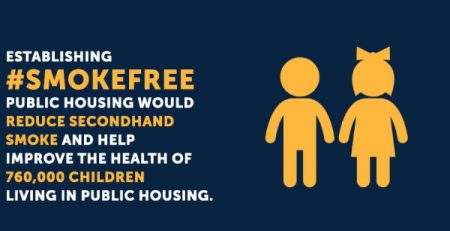Risk Factors for Cigarette Addiction in Children
Risk Factors for Cigarette Addiction in Children Press Release : Tobacco Control Research and Knowledge Management Center (TRC) Date : 10 January 2014 Release date : For Immediate Release
Research results indicate that a risk factor for initial smoking in children aged 9 12 is their friends who smoke, which is a variable key to encouraging smoking. So, one should build skills for children to refuse smoking, and make them determined to refuse smoking.
Mr. Kamolpu Thamamsat, a researcher of the Nursing Science Program in Community Nursing, the Faculty of Nursing, Burapha University, said that he received fund support from the Tobacco Control Research and Knowledge Management Center (TRC), and Thai Health Promotion Foundation (ThaiHealth) to conduct research entitled, Factors associated with initial stages of smoking behavior in male students studying in secondary schools” in 2010. Subjects were 338 male students studying at secondary schools in Trat province. The purpose of this study was to learn of the relationship between attitudes toward smoking, smoking awareness, and smoking avoidance since information from the National Statistic Office indicated an increase of the smoking numbers in adolescents. The average smoking prevalence for Thai adolescents aged 13 15 is 16.40%, of which most are male adolescent smokers. The number of male adolescent smokers is 3.33 times higher than the number of female adolescent smokers.
Mr. Kamolpu reported that in those aged 12 15, 62.60% started smoking at ages 9 12, and 3.05% started smoking even younger than 9. The smoking overall was 38.76% which indicates that most young smokers were only in the beginning smoking stage, and moving to the next stage of smoking would take a bit longer. Subjects had parents who smoked (59.76%), close friends who smoked (45.86%), and half of them had been invited to smoke at least one time by close friends. Moreover, research results also found that male students who had been persuaded to smoke by friends were more likely to smoke than those who had not been persuaded by friends. Student subjects clearly sought acceptance among their friends, being afraid to be looked down upon by their friends, and being tested for courage by other male students.
This research is to explore awareness to avoid smoking. The analysis shows that male students studying at secondary schools have low ability to avoid smoking and have attitudes to agree with smoking. If they have close friends who smoke or are invited to smoke from their close friends, they likely will smoke. As well, those who have low self esteem, parents that smoke, and low grades in school have low to unsuitable attitudes to avoid smoking. However, those that have confidence, high self esteem, and show they value themselves do better in avoiding smoking, said Mr. Kamolpu.
Mr. Kamolpu said that when making comparisons, results show that: (1) subjects with low smoking avoidance had 2.31 times the risk of smoking as compared to those knowing how to avoid smoking, (2) if subjects had positive attitudes toward smoking, their risk to become initial smokers was 2.61 times that of those having a negative attitude to smoking, (3) if subjects had been invited to smoke by their friends, the risk to smoke increased to 2.91 times that of those never invited to smoke by friends, and (4) if subjects had close friends who smoked, the risk of smoking increased 2.14 times as compared to subjects having no close friends who smoked.
Dr. Siriwan Pitayarangsarit, Director of the Tobacco Control Research and Knowledge Management Center (TRC), said that factors influencing the decision of male students to be initial smokers are: (1) smoking invitation from friends, (2) having close friends who smoke, (3) having a positive attitude toward smoking, and (4) the inability to avoid smoking. Therefore, smoking prevention in schools at the first stage can be driven by focusing on activities to enhance life skills, especially how to refuse an invitation to smoke from friends without losing positive feelings with each other, creating confidence in avoiding things that try to persuade one to smoke, daring to refuse cigarettes, creating right attitudes, and also providing knowledge of smoking dangers.
Request additional information, please contact:
Prof. Dr. Prakit Vathesatogkit, Action on Smoking and Health Foundation (ASH Thailand)
Tel.: 0-2278-1828 / 08-1822-9799












